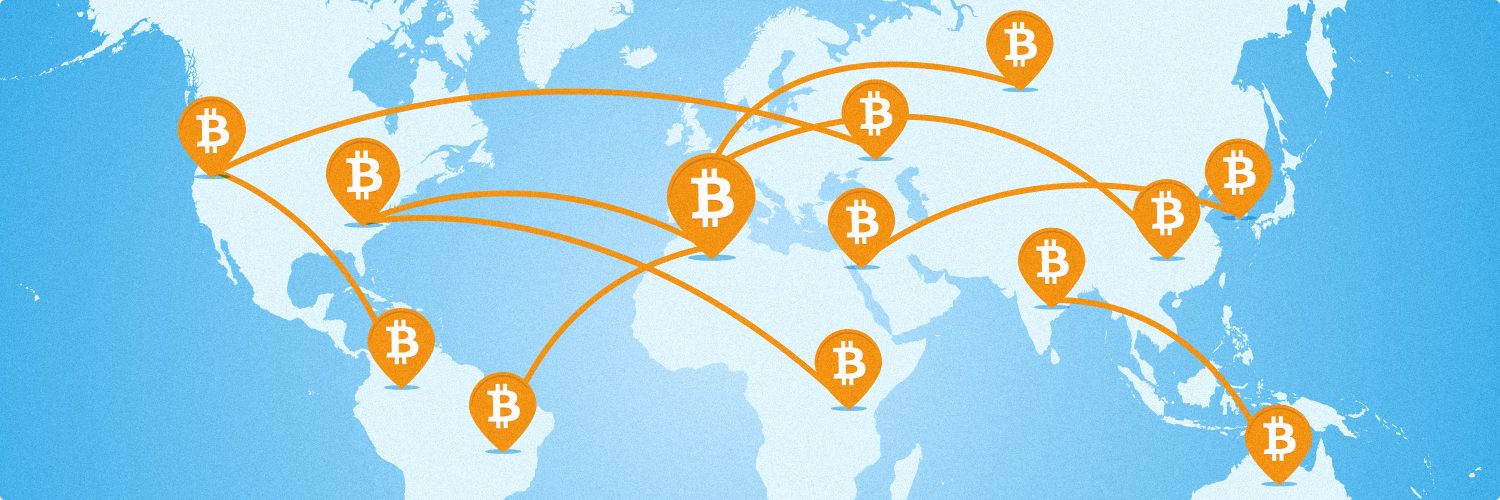
If you heard about Bitcoin for the first time, you might wonder: When I buy the cryptocurrency (Bitcoin) what exactly do I own? Today’s article is addressed to Internet novices, so we will try to answer similar questions and clarify some key terms and definitions, describe the process of a transaction and discuss security measures. The first thing to understand: Bitcoin is a financial unit of measure rather than material object. You cannot touch it; nevertheless, there are benefits that compensate this disadvantage. First of all, you can become an owner of Bitcoin; second, you can transfer Bitcoins to other network users; third and the most important, Bitcoins cannot be counterfeited.
These three qualities of the cryptocurrency allow it being a full-fledged participant in the system of distribution of material values. Let’s take Dollar as an example: it can be owned and it can be transferred, it is difficult to counterfeit, well, it is easier to counterfeit dollar than Bitcoin. The first way of allocation of values is cash, the second is Bitcoin.
About decentralization in short
If you were at least a little interested in arrangement of the Bitcoin system, so you might hear that transactions are recorded in a special way. There is no central server for storing data. So, how and where is information kept? The system is organized in such a way that hundreds thousands of servers united by a single math algorithm store all the data. Servers in Bitcoin system are called network nodes; they store data about all issued Bitcoins. By the way, Bitcoins are issued (extracted or mined) in limited and strictly controlled by the same math algorithm quantity.
Anybody can use a network node: the only thing to do is to install it in your computer, so you’ll have your own electronic accountant, whose work is honest, transparent and doesn’t require a payment. Any network node stores the information concerning all transactions in the course of Bitcoin existence, in other words, the copy of the public ledger (or open register) of the system.
The principle of system operation is simple and flawless. To use Bitcoins you need to have a protected by complicated two-level passwords Bitcoin-wallet. After that you may perform transactions while purchasing goods for Bitcoins, while transferring funds to other network users, or simply for keeping funds.
When a transaction is performed the system transfers the information on your Bitcoins’ movement from one place to another one, updating all network nodes within around 7 seconds. Thus, it is impossible to add or withdraw Bitcoins from the system, counterfeit or steal it.
Anonymity of transactions
As we have already found out, when you transfer Bitcoins to another wallet (to another user), you cannot use this amount again. It is clear that the new owner can use it.
It is impossible to betray the math program for a single simple reason – the sum of all Bitcoins is invariable regardless the ownership of funds.
A wallet of any network participant has its own enciphered code, note – the code, not a first name or a family name. It looks something like this: 1PreshX6QrHВsWbSs4pHpz6kLRcj9kdPy6. Moreover, any user may have unlimited number of wallets, that is why Bitcoin system is called an “anonymous system of financial payments”.
Transactions between wallets are performed very quickly and without any commissions – if you are a businessman who transfers large amounts you will appreciate that.
And in conclusion several words about security
Opening your Bitcoin-wallet you should take full responsibility for all the available information about the wallet. Write down security phrases, memorize passwords and save a copy of your wallet (you will be offered to do it during registration). This is very important because besides you nobody will have access to your wallet, so if you collect a great amount of Bitcoins and you forget your password nobody will be able to restore your password.
To secure your wallet we recommend not forgetting passwords and checking your computer for viruses and spyware on regular basis; the best option is to store the information about your cryptocurrency savings and passwords in storage media with no Internet access, i.e. inaccessible.
We have just mentioned several aspects which you can study in details. But we hope you’ve got the basic idea of Bitcoin and cryptocurrency prospects in general. Follow our newsfeed to learn more about the world of virtual money.
What Is Bitcoin?
22.01.2016
 Русский
Русский  English
English  中文
中文  भारतीय
भारतीय  Eesti
Eesti  Español
Español  Deutsch
Deutsch  Български
Български  Türkçe
Türkçe 

